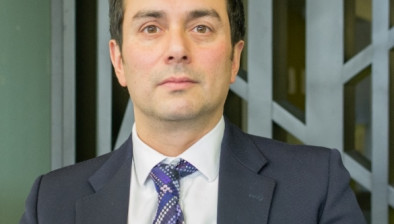Court of Appeal reserves judgment in case where wife asked judge not to jail husband who raped her

The Court of Appeal has reserved its judgment on whether to alter the sentence of a man who was jailed for three years after raping his wife, who asked a judge not to send him to prison.
The 38-year-old man was found guilty following a trial at the Central Criminal Court of raping and sexually assaulting his wife at their home in Dublin on 30 August 2015. He had denied the charges but accepted the jury’s verdict and apologised to his wife in court.
In a victim impact statement, the man’s wife said she had spent years in fear of her husband over what he would say or do.
A week later, she wrote a letter to the sentencing judge saying she had forgiven her husband and didn’t want him to go to jail. She said everything in her earlier statement was true, but that she now “regretted” bringing the case against him.
Mr Justice Paul Coffey sentenced the man to five years’ imprisonment and suspended the final two years on account of the victim’s plea for clemency.
The Director of Public Prosecutions is seeking a review of the man’s three-year jail term on grounds it is “unduly lenient”. The man is also appealing the severity of his sentence on grounds that the case is “exceptional” and the Court of Appeal reserved its judgment on both proceedings yesterday.
Counsel for the DPP, Anne-Marie Lawlor SC, said the headline sentence of six years was too low and the sentencing judge erred in the weight he afforded to the victim’s plea for clemency.
The court heard that the man’s wife was overwhelmed by the “practical difficulties” in having him removed from the home for a significant period. Her plea for clemency was motivated by “guilt” and she “blamed herself” for what had happened.
Taking the victim’s plea for clemency out of the case, Ms Lawlor said three years in jail for a “violent anal rape” would be a “ludicrous” sentence. During the rape, the man had put his hand over his wife’s face to stop her from screaming, had restrained her and ripped her clothing.
Ms Lawlor said rape was a crime against the community. She said the views of victims can be taken into account but they had to be weighed in the balance. There was evidence that the relationship was characterised by violence and she asked the court to “look at the video [of the relationship], not the photo”.
According to the woman’s first victim impact statement, she had been living with violence for a long time but “finally I’ve had the strength to get help”, Ms Lawlor said.
The man’s barrister, Padraig Dwyer SC, said the victim’s dilemma began when she realised the consequences of her husband’s rape conviction would be lengthy incarceration. He said the victim believed she was going to suffer more by having her husband put in prison for a lengthy period and she wanted to keep the family unit intact.
Mr Dwyer said the man had been the primary carer in the family which is why the wife believed that putting him in prison was going to add to her stress and anxiety.
He said the couple had restored their relationship and had been living together again after the rape in 2015. He said the man’s wife was an independent woman who was entitled to forgive and entitled to say “I want him to pay in a particular way”.
Mr Dwyer said there were “exceptional cases”. He submitted that the sentencing judge could have imposed a wholly suspended sentence on strict conditions to “avoid any repetition” of the offences.
“Some people might say” the woman’s plea for clemency was “foolish” but it was in the case. He said she “regretted” making the complaint only because she didn’t realise what the consequences would be.
Mr Justice John Edwards commented that victims of domestic abuse regularly “take back the abuser” and one had to view what was being said against that background.
Mr Dwyer said there was nothing to suggest the victim’s plea for clemency was anything other than genuine, as had been noted by the sentencing judge.
Mr Justice George Birmingham, president of the Court of Appeal, who sat with Mr Justice Edwards and Ms Justice Isobel Kennedy, said the court would reserve its judgment.
Mr Justice Birmingham had commented earlier that a sentence in the “double figures” would have been likely were it not for the victim’s intervention.
Ruaidhrí Giblin, Ireland International News Agency Ltd.







